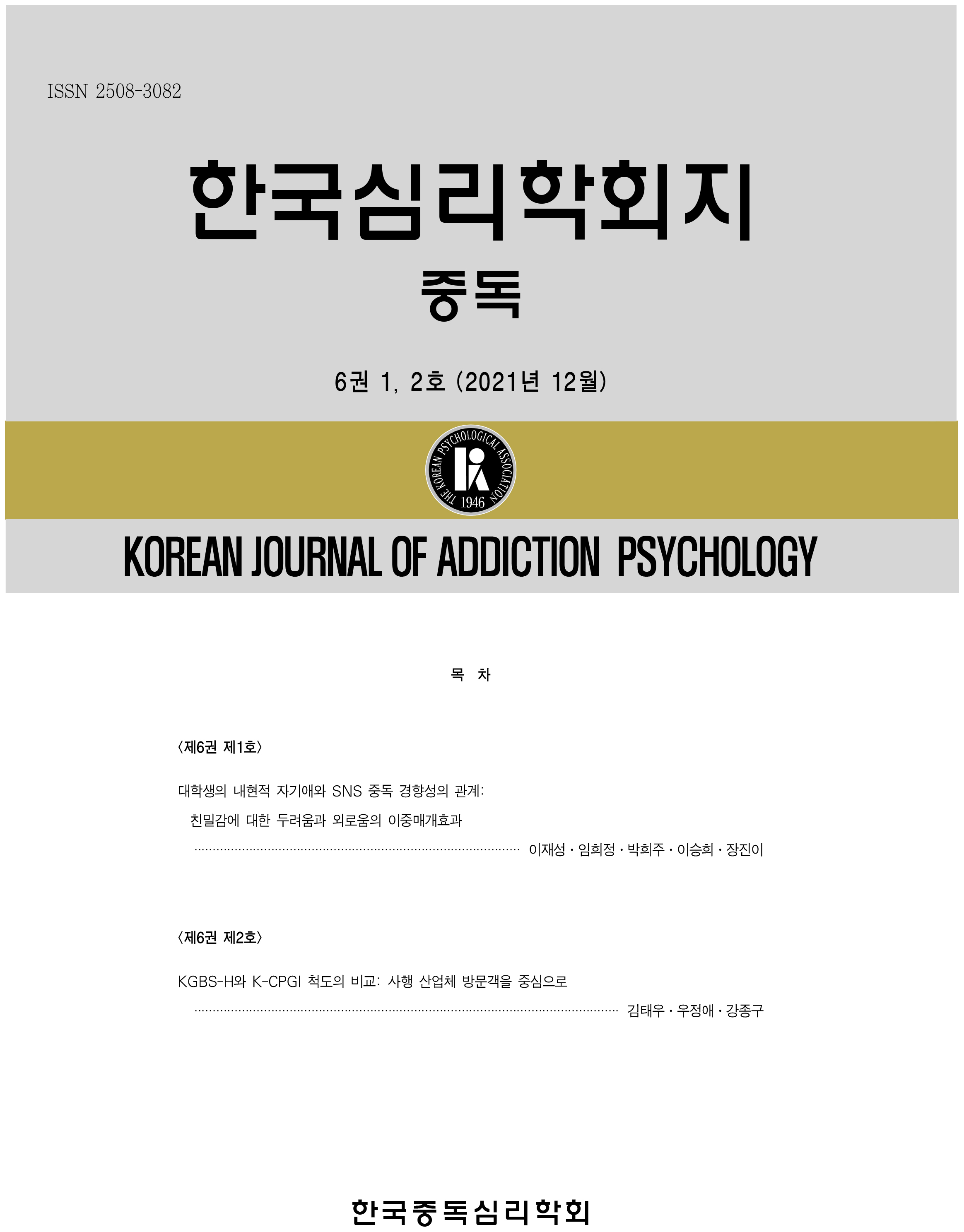5권 2호
초록
본 연구는 술을 마신다고 응답한 재난피해자들을 대상으로 재난 당시와 재난 이후의 생활변화 그리고 심리증상과 적응이 재난피해자들의 알코올 중독 위험을 예측하는지 살펴보았다. 그 결과 성별(남성들이 여성들에 비해), 결혼 상태, 그리고 교육수준이 알코올 중독 위험을 예측하였다. 의료비용 고충, PTSD와 우울증 증상 그리고 일상생활 부적응 또한 알코올 중독 위험과 관련이 있었다. 재난 이후 음주량이 변화가 없거나 감소한 재난피해자들에 비해, 음주량 증가한 재난피해자들이 알코올 중독 위험군에 속할 가능이 16.51배나 더 높다는 결과는 알코올 소비 증가에 기여하는 위험요인에 대한 더 많은 연구의 필요성을 시사한다. 이들 결과는 중장기적으로 알코올 중독을 감소시키기 위해 재난 스트레스 완화와 음주량 증가의 위험성을 알리는 개입의 필요성을 시사한다.
Abstract
This study examined the effects of peri-disaster factors, secondary stressors due to post-disaster life changes, and psychological symptoms and adjustments on alcohol addiction in disaster victims who reported current drinking alcohol. The results revealed that gender (more men than women), marital status, and education level predicted alcohol addiction risk. Medical cost distress, PTSD and depression symptoms and daily maladjustment were associated with alcohol addiction risk. The risk of alcohol addiction was 16.51 times higher in disaster victims who were increases in alcohol consumption than those who were no changes or decreases, indicating the need for more study to find risk factors that contribute to increased alcohol consumption. These findings suggest the need for intervention to mitigate post-disaster stressor and to inform the risk of increased alcohol consumption in order to reduce alcohol addiction risk in the mid- to long-term.

